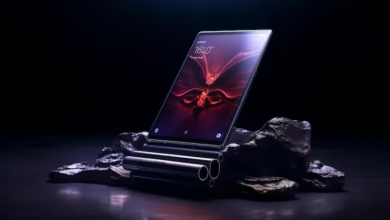Drive Social Media Lawsuit: What You Need to Know About Navigating Legal Battles in the Digital Age

In the rapidly evolving landscape of digital communication, social media has become an indispensable tool for individuals, businesses, and public figures alike. However, with great power comes great responsibility—and sometimes, great legal challenges. The phrase “drive social media lawsuit” captures a rising trend where conflicts arising on social media platforms escalate into legal battles. Whether you are a social media user, influencer, business owner, or legal professional, understanding the dynamics of a drive social media lawsuit is essential in today’s interconnected world.
This comprehensive article explores the concept of a drive social media lawsuit, why these cases are becoming more common, how they unfold, and what you can do to protect yourself and your interests.
Understanding the Drive Social Media Lawsuit Phenomenon
Social media platforms such as Facebook, Twitter, Instagram, TikTok, and LinkedIn have revolutionized how people communicate, market, and engage with audiences. However, these platforms can also be a breeding ground for disputes that sometimes escalate to legal action. The term drive social media lawsuit typically refers to lawsuits initiated due to conflicts originating or significantly involving social media activities.
These lawsuits may be driven by issues such as defamation, harassment, privacy violations, intellectual property infringement, or breaches of contract tied to social media use. The ease and speed of communication online mean that harmful statements or actions can quickly spread, causing real-world damage that may necessitate legal remedies.
Common Causes Leading to a Drive Social Media Lawsuit
Several key issues commonly trigger a drive social media lawsuit. Understanding these will help you identify potential risks and avoid legal pitfalls.
1. Defamation and Libel
One of the most frequent reasons for a drive social media lawsuit is defamation. When someone posts false statements that damage another person’s reputation, the injured party may seek legal action. Social media amplifies the impact, as defamatory content can go viral quickly.
2. Harassment and Cyberbullying
Harassment via social media platforms can cross legal boundaries, prompting victims to file lawsuits. Cyberbullying, stalking, and threats can all lead to a drive social media lawsuit seeking damages or protective injunctions.
3. Privacy Violations
Sharing personal information or private content without consent is another major cause. Lawsuits can arise when individuals feel their privacy rights have been infringed upon by social media posts or data misuse.
4. Intellectual Property Infringement
Unauthorized use of copyrighted material, trademarks, or patented content on social media may trigger legal disputes. A drive social media lawsuit in this context often involves claims for damages and demands to cease infringing activities.
5. Breach of Contract and Employment Disputes
Sometimes, social media content can violate contractual agreements, such as non-disclosure clauses or codes of conduct, especially in employment contexts. This can lead to lawsuits driven by social media behavior.
The Rise of Drive Social Media Lawsuit Cases: Why Now?
The increase in drive social media lawsuit cases is driven by several factors:
- Ubiquity of Social Media: With billions of active users worldwide, social media is a fertile ground for conflicts to arise.
- Increased Awareness: People are more aware of their legal rights and more willing to pursue lawsuits to protect their interests.
- Corporate Reputation Management: Businesses increasingly view lawsuits as a tool to protect their brand image from damaging social media campaigns.
- Legal Precedents: Courts have become more equipped to handle digital-era disputes, making lawsuits a viable option.
How a Drive Social Media Lawsuit Unfolds: Step-by-Step
If you find yourself involved in a drive social media lawsuit, knowing what to expect can be invaluable.
Step 1: Incident and Evidence Collection
The lawsuit typically begins with an incident—a defamatory post, harassment, or copyright infringement. Collecting digital evidence such as screenshots, timestamps, and platform metadata is crucial.
Step 2: Legal Consultation
Engaging an attorney specialized in social media law helps evaluate the merits of the case and the best legal strategy.
Step 3: Filing the Complaint
The plaintiff files a formal complaint in court, outlining the claims related to the social media incident.
Step 4: Discovery and Negotiation
Both parties exchange evidence and may attempt settlement discussions before a trial.
Step 5: Trial or Resolution
If no settlement is reached, the case proceeds to trial, where judges or juries decide based on presented evidence.
Protecting Yourself from Becoming Part of a Drive Social Media Lawsuit
Whether you are an individual or a business, it is crucial to adopt practices that reduce your risk of involvement in a drive social media lawsuit.
Practice Responsible Posting
Always think twice before posting anything that might be defamatory, invasive, or infringing on someone else’s rights.
Understand Platform Policies
Familiarize yourself with the terms of service of each social media platform, as violations can also lead to legal or account penalties.
Secure Privacy Settings
Use privacy controls to limit who can see your content, reducing exposure to conflicts.
Obtain Permissions
Always seek consent before sharing content involving others or copyrighted material.
Keep Records
Maintain records of your social media interactions, especially if they relate to business or public communications.
The Role of Legal Professionals in Drive Social Media Lawsuit Cases
Lawyers specializing in social media law play a critical role in resolving drive social media lawsuit cases. They assist in:
- Assessing the strength of claims
- Drafting cease-and-desist letters or DMCA takedown notices
- Negotiating settlements or pursuing litigation
- Advising on compliance and social media policies for businesses
Impact of Drive Social Media Lawsuit on Individuals and Businesses
The consequences of being involved in a drive social media lawsuit can be profound:
- Financial Costs: Legal fees, settlements, or damages can be substantial.
- Reputational Damage: Negative publicity may arise during public lawsuits.
- Operational Disruption: Businesses may face distractions or regulatory scrutiny.
- Emotional Stress: Individuals involved often experience significant emotional toll.
Emerging Trends and Future Outlook
The future of drive social media lawsuit cases is shaped by evolving technology, laws, and social norms:
- AI and Deepfakes: As synthetic media becomes more prevalent, courts will face new challenges in identifying defamation or fraud.
- Stronger Regulations: Governments are increasingly enacting laws to regulate online speech and platform responsibilities.
- Alternative Dispute Resolution: Mediation and arbitration may become more common to handle social media conflicts efficiently.

Conclusion: Navigating the Complexities of Drive Social Media Lawsuit
In conclusion, the phenomenon of a drive social media lawsuit reflects the growing intersection between digital communication and the legal system. While social media offers unparalleled opportunities for connection and growth, it also poses risks that can lead to serious legal consequences.
By understanding the causes, processes, and preventive measures associated with a drive social media lawsuit, individuals and businesses can better protect themselves in this complex digital age. Responsible social media use, coupled with expert legal guidance, is the key to navigating and thriving in the world of online interaction without falling prey to costly disputes.





